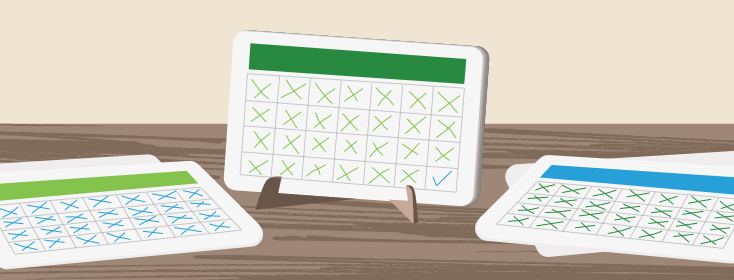What to Eat When You Have IBS
If you have IBS, you have likely heard of the low FODMAP diet or tried it yourself. While the low FODMAP diet is extremely effective in reducing symptoms, the results are only achieved if following the diet correctly.1 Many people are simply told in passing to try the diet from a health care provider but are not given the instructions on how to eliminate and more importantly, how to reintroduce FODMAPs into the diet. Ideally, the low FODMAP diet should be undertaken with the supervision and counseling of a Registered Dietitian or trained professional.
The low FODMAP diet is not like a gluten-free diet for Celiacs, which is for life. Low FODMAP is meant as a short-term (4-12 weeks) intervention only, followed by strategic reintroduction of FODMAP containing foods to maximize variety in the diet. In fact, staying on the low FODMAP diet long term can actually worsen symptoms as it removes a multitude of fiber sources and prebiotic foods, which feed the good bacteria in our gut.
FODMAPS are defined as fermentable oligosaccharide, disaccharides, monosaccharides, and polyols. Or, more succinctly, small chain carbohydrates or sugar alcohols that are poorly absorbed and fermented in the gut which can trigger gastrointestinal symptoms.
FODMAP categories
FODMAP containing foods can be put into four different categories:
- Lactose - Found in dairy products such as milk, ice cream, yogurt, and cheese.
- Fructose - Found in some vegetables and fruits such as apples, watermelon, snap peas, and asparagus. As well as beverages such as juice and pop and sweet treats which use honey, agave, or high fructose corn syrup (glucose-fructose) as a sweetener.
- Polyols - Sugar alcohols used to sweeten sugar-free candies, gum, and mints. Also found in some vegetables and pitted fruit such as avocado, mushrooms, cherries, and cauliflower.
- Fructans and galacto-oligosaccharides - Found in some vegetables and fruits including garlic, onions, and cabbage. Additionally, they can be found in multiple grains including wheat, rye, and barley, as well as beans, pulses, and soy.
Read “The Low FODMAP diet” for a more comprehensive listing of FODMAP containing foods.
As you run through the list, it may feel that very little is available to eat on the low FODMAP diet. Luckily, it can be quite simple to create a variety of meals from foods you already have on hand.
Low FODMAP breakfast ideas
- Lactose-free yogurt with berries and 1 Tbsp mixed chia, pumpkin, and flax seeds
- Oatmeal topped with sliced bananas and 1 Tbsp almond butter
- Ham, pepper, and tomato omelette with gluten-free toast
- Green smoothie made with pineapple, spinach, almond milk, and lactose-free greek yogurt.
Low FODMAP lunch ideas
- Corn tortillas filled with sliced chicken, grilled zucchini and peppers and 1 oz shredded cheddar
- Mixed green salad topped with canned tuna, sliced tomatoes, cucumbers, and bell peppers with homemade dressing (olive oil, red wine vinegar and dijon mustard)
Low FODMAP supper ideas
- Grilled chicken breast with lemon and dill, quinoa and roasted bell peppers
- Homemade hamburger patty on gluten free bun with mixed green salad (olive oil and balsamic vinegar dressing)
Low FODMAP snack ideas
- Rice crackers with 1 oz cheddar cheese
- Almonds with dark chocolate chunks
- Low FODMAP granola bars
Although the low FODMAP diet can appear overwhelming at first, it’s comforting to know that it is a short-term intervention only. By taking the time to meal plan, it can be easier to find meal and snack ideas from the foods already contained in your fridge and pantry. Plus, as the number of people requiring low FODMAP foods grows, a number of low FODMAP products are hitting the markets making complying with the diet even easier.

Join the conversation